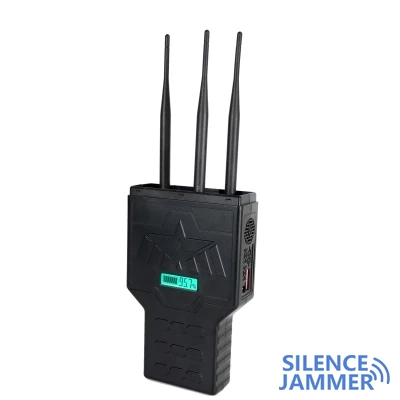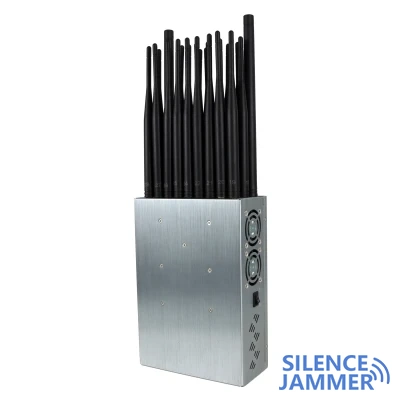In recent years, the crime rate in the Nelson Mandela Bay region of South Africa has remained high, with frequent incidents such as robbery, murder, kidnapping and extortion. Mayor Gary van Niekerk revealed that many crimes were actually planned by prisoners inside St. Albans Prison. This situation has attracted great attention from the local government and prompted relevant departments to take further measures to curb crime.
Oscar Mabuyane, Premier of the Eastern Cape Province, pointed out that St. Albans Prison and Wellington Correctional Facility in Mthatha have become "hard-hit areas" of criminal activities. As a countermeasure, the South African Correctional Department is planning to install cellphone signal jammer devices around these prisons to block the channels for prisoners to command external crimes through mobile phones.
Planned deployment and challenges of cellphone signal jammers
- Mayor Van Niekerk revealed that the correctional services department has entered the late stages of the project and plans to block mobile phone signals around St. Albans Prison. By cutting off mobile phone communications, they hope to prevent prisoners from using mobile phones smuggled into the prison to transmit criminal instructions.
- Corrections Minister Pieter Groenewald said in the National Assembly that the plan faces practical difficulties, especially since St. Albans Prison is close to residential areas and major highways. If jammer devices are used indiscriminately, it may have a negative impact on the surrounding community.
- Groenewald pointed out: "While we have technology to block signals more specifically, it is expensive and budget issues need to be considered." He further stated that more advanced technology is currently being studied to ensure that the interference range is limited to the prison and does not affect the surrounding area. This more precise technology can not only effectively block illegal communications, but also reduce interference with surrounding residents.
Balance between technology and legal issues
In order to avoid legal disputes, Singabakho Nxumalo, a spokesperson for the correctional services department, said that they are evaluating various technical solutions and gradually advancing related projects while ensuring safety. Nxumalo added: "For security reasons, we cannot reveal too many details about the project." This shows that the South African government still needs to deal with many technical and legal challenges while promoting this plan.

Anti-crime activist Yusuf Abramjee supported this and believed that installing signal jammer devices could significantly reduce the crime rate in prisons. He pointed out: "Mobile phones are smuggled into prisons every day, and these phones become tools for criminals to carry out fraud and criminal instructions." Abramjee also emphasized that blocking illegal mobile phone communications does not mean depriving prisoners of their legal right to contact the outside world, because prisons still provide monitored call privileges, but they need to be carried out within the legal framework.
In addition, the government also plans to introduce other technical means, such as enhanced surveillance cameras, thermal imaging equipment, etc., to further strengthen security precautions inside prisons. With the gradual implementation of these measures, criminal activities in St. Albans Prison and other high-risk areas are expected to be significantly curbed, creating a safer environment for surrounding communities.




